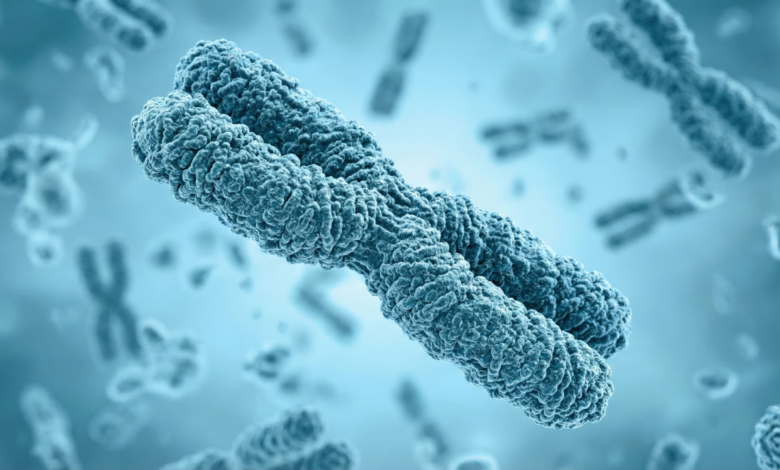Blog
जीन क्या होते हैं और बीमारियाँ कैसे फैलती हैं?

क्या जेनेटिक बीमारी सिर्फ एक ही बच्चे को हो सकती है?
- हाँ, कभी-कभी एक ही बच्चे को जेनेटिक बीमारी होती है और बाकी बच्चों को नहीं
- यह इस बात पर निर्भर करता है कि जीन कैसे बच्चे तक पहुँचे
- हर बच्चे को जीन अलग तरीके से मिलते हैं
- इसलिए हर बच्चे का रिस्क अलग होता है
- डॉक्टर टेस्ट से बता सकते हैं कि संभावना कितनी है
हीमोफीलिया क्या होता है?
- हीमोफीलिया खून से जुड़ी जेनेटिक बीमारी है
- इसमें खून जल्दी नहीं रुकता
- मामूली कट में भी देर तक खून बह सकता है
- यह सबसे ज्यादा लड़कों में होती है
- इसका इलाज होता है लेकिन बीमारी रहती है
जेनेटिक बीमारी क्या होती है?
- जो बीमारी जीन में गलती की वजह से होती है उसे जेनेटिक बीमारी कहते हैं
- जीन हमारे शरीर का नक्शा होते हैं
- अगर नक्शे में गलती हो जाए तो बीमारी हो सकती है
- यह गलती जन्म से होती है
- कुछ बीमारियाँ हल्की तो कुछ गंभीर होती हैं
क्या माँ-पापा से बच्चे को जीन जाते हैं?
- हाँ, हर बच्चा माँ और पापा दोनों से जीन लेता है
- जीन शरीर, रंग, बाल, और स्वास्थ्य तय करते हैं
- अगर जीन में गलती हो तो बीमारी हो सकती है
- कुछ में बीमारी माँ से आती है
- कुछ में पापा से
क्या लड़के और लड़कियाँ दोनों को जेनेटिक बीमारी हो सकती है?
- हाँ, दोनों को हो सकती है
- लेकिन कुछ बीमारियाँ लड़कों में ज्यादा दिखती हैं
- जैसे हीमोफीलिया
- यह इस पर निर्भर करता है जीन कौन-सा है
- डॉक्टर टेस्ट से बताते हैं
क्या हर जेनेटिक बीमारी जन्म से दिखती है?
- ज्यादातर जन्म से होती है
- पर कुछ का असर बाद में दिखता है
- मतलब बीमारी छुपी रह सकती है
- जीन में गलती पहले से होती है
- बस लक्षण देर से आते हैं
क्या कोई व्यक्ति बीमारी का जीन लेकर भी ठीक रह सकता है?
- हाँ, ऐसे लोगों को कैरियर कहते हैं
- वे खुद बीमार नहीं होते
- लेकिन बच्चों को जीन दे सकते हैं
- इससे बच्चा बीमार हो सकता है
- इसलिए टेस्ट जरूरी होते हैं
डाउन सिंड्रोम क्या होता है?
- डाउन सिंड्रोम में बच्चा एक अतिरिक्त क्रोमोसोम के साथ पैदा होता है
- इससे सीखने और बढ़ने की रफ्तार अलग होती है
- बच्चे प्यारे और प्यार करने वाले होते हैं
- सही देखभाल से वे अच्छा जीवन जीते हैं
- स्कूल और थेरेपी मदद करती है
सिकल सेल बीमारी क्या है?
- यह खून की जेनेटिक बीमारी है
- लाल रक्त कोशिकाएँ अलग आकार की हो जाती हैं
- इससे दर्द और थकान हो सकती है
- बीमारी पीढ़ियों में चलती है
- इलाज से नियंत्रण होता है
क्या जेनेटिक बीमारी पूरी तरह ठीक हो सकती है?
- कुछ बीमारियाँ पूरी तरह ठीक नहीं होतीं
- पर इलाज से लक्षण कम होते हैं
- नई जीन थेरेपी पर काम चल रहा है
- जल्दी पहचान बहुत मदद करती है
- डॉक्टर की सलाह जरूरी है
जेनेटिक बीमारी की जाँच कैसे होती है?
- खून या डीएनए टेस्ट किए जाते हैं
- परिवार का इतिहास पूछा जाता है
- कभी गर्भावस्था में भी टेस्ट होते हैं
- रिपोर्ट से बीमारी का पता चलता है
- समय पर जाँच ज़रूरी है
क्या हीमोफीलिया छूने से फैलता है?
- नहीं, यह छूने से नहीं फैलता
- यह सिर्फ जीन से होता है
- बच्चों के साथ रहना सुरक्षित है
- बस चोट से बचाना जरूरी है
- सही जानकारी रखना जरूरी है
क्या जेनेटिक बीमारी वाले लोग सामान्य जीवन जी सकते हैं?
- हाँ, बहुत लोग अच्छा जीवन जीते हैं
- सही इलाज और देखभाल जरूरी है
- परिवार का साथ बहुत मददगार होता है
- स्कूल और काम भी संभव है
- हर बच्चा खास होता है
क्या गलत लाइफस्टाइल से जेनेटिक बीमारी होती है?
- नहीं, यह जीन से होती है
- पर अच्छी लाइफस्टाइल शरीर को मजबूत रखती है
- जैसे सही खाना और नींद
- इससे लक्षण कम हो सकते हैं
- डॉक्टर की सलाह माननी चाहिए
क्या दो स्वस्थ माता-पिता के बच्चे को जेनेटिक बीमारी हो सकती है?
- हाँ, अगर दोनों कैरियर हों तो हो सकता है
- माता-पिता को बीमारी नहीं होती
- पर जीन बच्चे तक पहुँच सकता है
- इससे बच्चा बीमार हो सकता है
- इसलिए जेनेटिक काउंसलिंग मददगार है
जेनेटिक काउंसलिंग क्या होती है?
- यह जीन से जुड़ी सलाह और जानकारी होती है
- विशेषज्ञ बताते हैं बीमारी कैसे चलती है
- बच्चे को बीमारी का रिस्क कितना है
- परिवार सही निर्णय ले पाता है
- यह बहुत मददगार सेवा है




